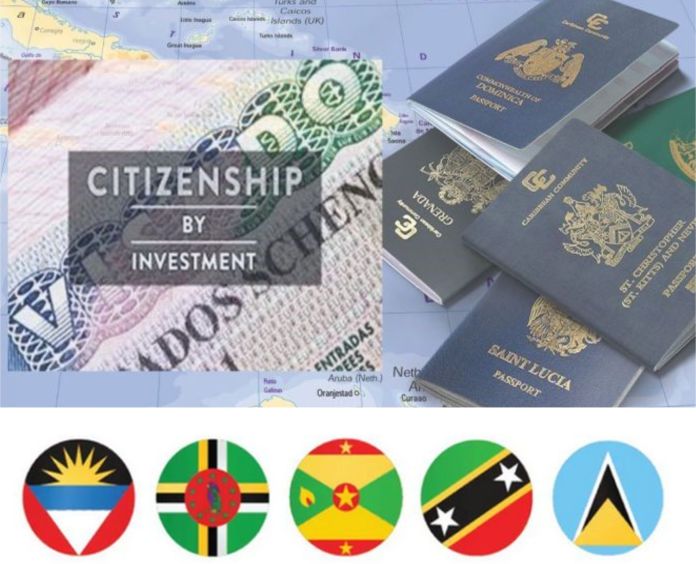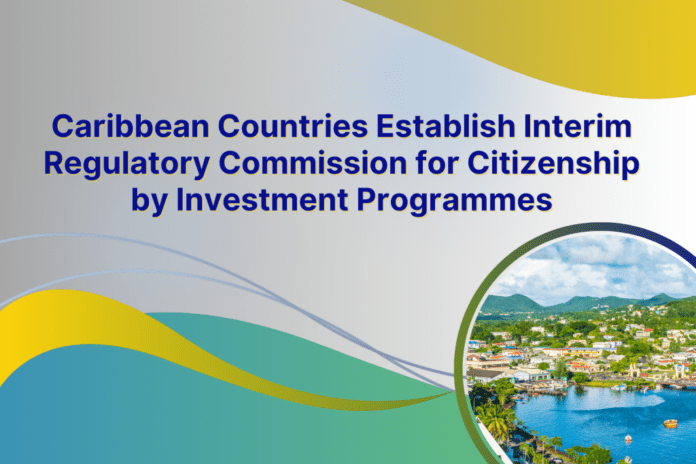 ENGLAND / CANADA – The ongoing turmoil in Caribbean CBI to substantial evidence of fraud, money laundering, and corruption, including submission to the US Department of Justice (DOJ) and FinCEN for their ongoing investigation; supplemented by St Kitts and Nevis in the fight against “illegal discounting” and “underselling” by identifying bad actors to administer action, herein commendable, pivots regional actions to a comprehensive approach to justice and comradery among Caribbean CBI programmes.
ENGLAND / CANADA – The ongoing turmoil in Caribbean CBI to substantial evidence of fraud, money laundering, and corruption, including submission to the US Department of Justice (DOJ) and FinCEN for their ongoing investigation; supplemented by St Kitts and Nevis in the fight against “illegal discounting” and “underselling” by identifying bad actors to administer action, herein commendable, pivots regional actions to a comprehensive approach to justice and comradery among Caribbean CBI programmes.
Caribbean CIP/CBI programmes are currently deficient in solidifying trust, transparency, regional security and cohesion, with no clear plan for the future of the programme. The destiny of Caribbean CBI programmes is virtually in the hands of US and EU jurisdictions, irrespective of illustrious Caribbean politicians talking heads of low influence.
Subject to letters and notifications in wide circulation, and limited collective action by CBIPs, (Saint Lucia, Dominica, Grenada, St Kitts and Nevis, Antigua and Barbuda), it cannot be equitable and accepting for business as usual, relevant to (CIP/CBI operatives) marketing agents, consultants, and developers that are implied, implicit and/or found wanting to continue operating in the Caribbean migration industry.
Consequently, what does one have to do to occupy the Blacklist?
Consider how one Caribbean CIP/CBI revoke a file/ applicant based on legal factors, while other CBIPs process the file/applicant from the same CIP/CBI preferred vendor.
Thus, the preface to unified actions in a small defined space is optimal in the adherence to principle and policy – to actualize collective regional and international application of law and contracts – Memorandum-of-Agreement-CBIP-20-March-2024 – relative to (CIP/CBI operatives) CIP/CBI due diligence units and governments collection of (peanut) fees.
And by the virtue of a shared value to human conduct, Caribbean governments and legislators are obligated to rise and lead in the realm of achieving regional sovereignty in public life and business on a defensible standard.
Herein, is there a different definition for justice and doing business in and for the Caribbean region? Who and what differentiates one CIP/CBI functionality from another?
CIP/CBI Justice
The quality of being just, impartial, or fair is the principle or ideal of distributing the right action. And, when justice is the central part of ethics – the question must be asked whether CBIPs treat all CIP/CBI operators and preferred vendors equally.
CIP/CBI Comradery
On the aspect of comradery, defined as a feeling of friendliness, goodwill, and familiarity among people, i.e., CBIPs, factors of trust, shared goal or experience – oblige common elements.
Comrades have the freedom to duty, people and country. However, disparities in the actions of CBIPs call to question, as each applied variable standards in failing to blacklist agents and consultants who violate and/or are wittingly and/or unwittingly, compete adversely to state law and signed contracts, and proceed to amass wealth without justice.
The Three Musketeers storey relative to CBIPs
History teaches how ‘Young D’Artagnan arrives in Paris, D’Artagnan finds himself caught in a web of adventure, love triangles, and political intrigue. And after a rocky start, becomes friends with the three gentlemen of the title. All the members of a group support each of the individual members, and the individual members pledge to support the group.’
Does the concept “all for one and one for all” exist in CBIPs, CARICOM, and the OECS?
Caribbean CBI countries organise towards MOA – July 1, 2024
Considering the signatories to the MOA subtitles – Pricing, Information sharing and transparency standards, Regulator, Security Screening and framework, Dispute Resolution, Legal Effect – reverberates on “the purpose of this MOA is to provide a framework for cooperation and information sharing between the Parties in relation to their CBIPs. This includes, but is not limited to, the exchange of best practices, due diligence processes, and intelligence related to potential security or compliance risks.”
The laws of justice and comradery correspond to the ethics required for the removal of not just the revocation of applicants found in violation of individual countries’ CIP/CBI programmes, but the removal and blacklisting of corresponding CBIPs operators and preferred vendors – from doing Caribbean CIP/ CBI business.
Comradery is a spirit of friendship and community – CBIPs, CARICOM, and OECS, hitherto, the inconsistency in the prosecution, removal and blacklisting of CBIPs operatives are not held to account?
In circumstances of divergence and schemes that leapfrog processes, leading Caribbean CIP/CBI authorities are duty-bound to review the programme and/or overhaul systems, before all is lost, if not already.
CARICOM IMPACS-Joint Regional Communications Centre (JRCC) mainly responsible for the operations and management of the Advance Passenger Information System (APIS) is one of two Sub-Agencies of CARICOM IMPACS, part of the Regional Framework for Crime and Security, the other being the Regional Intelligence Fusion Centre (RIFC) a sub-agency in Trinidad and provides support to Member States in intelligence gathering, sharing and analysis.
Value proposition
Competent CIP/CBI operators and preferred vendors in the industry deserve equal economic, political, and social opportunities. They ought not to be seen in the light of crooks and con artists that overshadow ethics, the essence of fairness and justice.
There can be no justice (ethical, philosophical idea) when one Caribbean CIP/CBI programmes among the (CBIPs) deal appropriately with matters while others are allowed to permeate, oftentimes discriminatory, in an uncommon manner.
State laws, MOAs and contracts are meant to achieve value propositions that do not bring undue harm, and where harm is patent, remedial action should be collective and swift.
Caribbean CIP/CBI programmes must progress on equity and justice (Nyaya) towards preferred vendors in the transaction of legitimate migration and investments. The framework for thinking ethically must be clear and beneficial to the development of the people and the Caribbean region.






